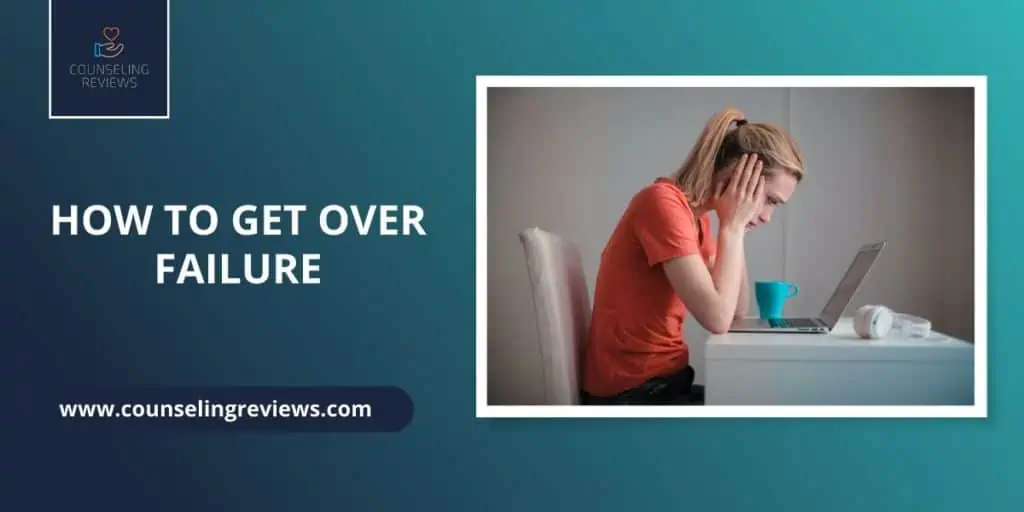Some of the biggest fears that people have in life are fears of failure. Ironically, failure is one of the only constant occurrences on the road to success. Some of the great success stories like those of Michael Jordan or Walt Disney are actually marked by failures.
Failure is a part of the road to success. That is pretty much the first thing that you have to accept if you are looking for healthy ways to become successful. You cannot let the fear, anger or shame of failure keep you from trying things that could potentially lead you to become successful. What we can’t deny, though, is the fact that failure hurts.
There have even been studies trying to measure exactly how much failure hurts a person, and these studies actually compare the emotional distress of failure and the presence of physical pain.

Are You Predisposed To Act To Failure In A Certain Way
One of the things that could potentially determine whether or not you will be successful in the long run is how you react to failure. This is where we typically encounter the first problem; not everyone is going to have the same direct response to failure.
Over time you can develop ways to overcome failure or learn how to cope with failure. The thing is, you may have a natural way of reacting to failure that can be positive or negative. Depression and, at times, physical pain can actually come as a result of a failure.
You really won’t know how you react to failure until you’ve failed the first time around. Failures can come in business, in sports, in relationships, or even in school. Dealing with thought patterns and adversity is essential to build that capability of withstanding difficult times and rising above them.
Ways To Actually Cope With & Overcome Failure
Once you experience what your natural reaction to adversity is, you can start taking steps to try and adjust your behavior to be able to use these situations to your advantage. As was mentioned before, many of the people that you find being used as the poster children of success are only there because they were able to overcome things in their lives with professional help.
Step 1: Accept That You Failed
In business and in plenty of card games, it’s always said that knowing when to take your losses and move on is a virtue. It can be really hard to come to the realization that you have failed. Once you do, though, you’ll be able to look back at the experience for what it was and open yourself up for new opportunities.
Step 2: Analyze What Went Wrong
If you are talking about failure in business, this is where you have to bring data into the equation and figure out where things went wrong. If it’s a failure in a relationship, it’s important to not lie to yourself. Maybe bring in someone to give you an external point of view. Until you understand why you failed, it’s going to be hard to try again, and expect different results.
Step 3: Look For New Goals
Life is full of ups and downs, and pretty much the only thing that can guarantee that you’ll be successful in the long run is not giving up. Take what you learned from the past experiences and search for something that you could look at as a new challenge. In a lot of ways, life is just one big trial and error process from beginning to end!
If you are unable to do this yourself, and some people are struggling, trying something like online counseling can certainly help. Counseling and therapy can guide you down the road of understanding what happened and help you to learn from your previous mistakes and experiences.
Go at Your Own Pace
The way that we drew up getting over failure can make it seem simple enough. When you do come across hard times, it can be tough just getting out of bed. There is essentially a grieving process that you have to go through when you fail.
More often than not, getting through this process is just going to take some time. Obsessing over a mistake will not change the outcome. It’s understandable that when you get knocked down you want to get right back up. When this happens in a business sense, you are going to want to get back to making money as fast as possible.
Even if you have the ability to pick yourself up and find a job the next day, it’s still a good idea to allow yourself to go through the grieving process. Once you are able to clear that hurdle, you are going to start seeing things more clearly in retrospect moving forward in a healthy way forward.
When you take the experience that you earned from the low times, that’s the moment when you’ve really mastered how to get over failure!
Conclusion
How we react to failure is not predetermined; it varies from person to person. Embracing failure as a learning experience and seeking professional help, like counseling, can aid in coping and overcoming adversity. Acceptance, analysis, and setting new goals are essential steps in the process.
Taking time to grieve and going at one’s own pace contributes to a healthier recovery. Embracing failure’s lessons enables personal growth and paves the way for future success. Remember, setbacks can be stepping stones to triumphs!
Overcoming Failure FAQs
Fear of failure, societal expectations, perfectionism, low self-esteem, shame and negative self-talk may hinder growth mindset acceptance. Embrace failures as learning opportunities, reframe negative thoughts often, set realistic goals, and seek support to foster self compassion and resilience. A stepping stone along their path to greatness.
Dealing with failure is vital because it fosters growth, resilience, and self-improvement. It enables us to learn from mistakes, gain valuable insights, and develop stronger problem-solving skills, ultimately leading to greater career success and personal development. Instead of feeling bad and wallowing in your own self-pity, t’s your responsibility to use these feelings as your drive to do better and to improve future performance.
Yes, counseling can be highly beneficial in helping individuals cope with and overcome failure. Professional counselors provide a safe and supportive space to process emotions, explore underlying issues, challenge negative beliefs, and develop coping strategies. They can assist in building resilience, self-confidence, and a positive outlook on future endeavors.
- Learning from failing experiences: Failures provide lessons to learn skills and insights to avoid failing and repeating mistakes.
- Resilience: Overcoming past failures builds mental strength and adaptability.
- Innovation: Failures foster creativity and encourage new approaches.
- Humility: They keep us grounded and humble in success.
- Character growth: Failures shape character and perseverance.





